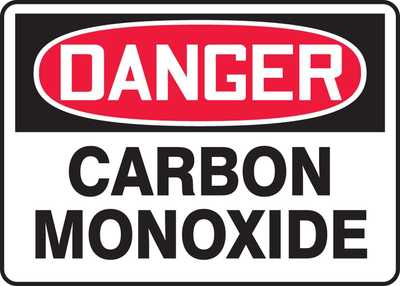
Not all disasters come with clear and obvious warning signs. Some can arise in silence like carbon monoxide buildups in homes.
When carbon monoxide builds up in a home, it can expose occupants to carbon monoxide poisoning. Buildups can occur in a variety of ways, such as through breakdowns, ventilation problems, or defects in gas appliances (such as heating and water heating systems). This is why it’s important to have these appliances checked regularly.
Exposure to excessive amounts of carbon monoxide can be very harmful to a person’s health. It can even be fatal. Generally, the longer the exposure, the more harm can be done.
Carbon monoxide is both odorless and colorless. Therefore, there isn’t much in the way of natural warning signs when it’s building up. Having a battery-powered or battery-backed-up carbon monoxide detector in your home is important to help ensure you and your family are alerted if this silent disaster is arising.
In addition to having a carbon monoxide detector, it is also important to take steps to ensure this detector serves its key role. This includes:
- Making sure it is in the right place: It is important for the detector to be in a place where you and your family will hear it, even if you are sleeping.
- Regularly checking the detector‘s batteries: To make sure you don’t forget to do this, you might find it helpful to always do such a battery check when adjusting the time on your clocks in the fall and spring.
- Replacing the detector at appropriate intervals: According to CDC recommendations, you should replace carbon monoxide detectors every five years.
You will also want to make sure that your family knows what to do if the alarm goes off. When the alarm gives off:
- Get out of the house right away.
- Call 911.
- Get prompt medical attention if you are showing signs of potential carbon monoxide poisoning. Such signs include dizziness, light-headedness, headache, chest pain, confusion, nausea and vomiting.
Carbon monoxide poisoning is a very serious condition. Take the steps necessary to protect your family from what could be a potentially disasterous situation.

